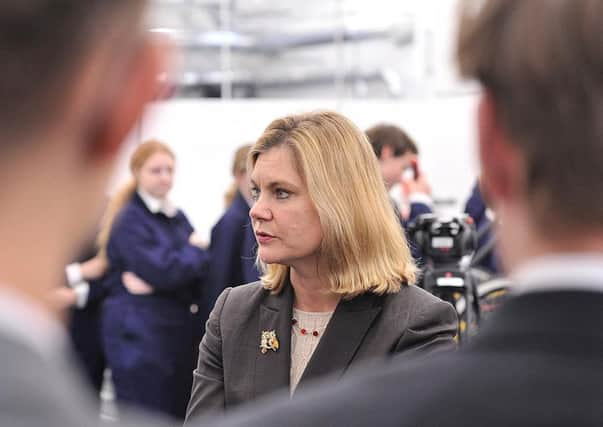YP Comment: Quality teaching can change lives. Schools only as good as their staff


As the first Education Secretary to have attended a comprehensive school, Rotherham-born Justine Greening will understand the importance of this – her political career, in part, is thanks in no small part to the teachers who inspired and nurtured her.
Likewise this country’s role models from all walks of life. By way of example, it was discernible last summer that so many of Team GB’s heroes credited a teacher with being the greatest influence on their lives.
Advertisement
Hide AdAdvertisement
Hide AdYet, as the Education Select Committee warns in a hard-hitting report, staff shortages means more pupils being denied the world-class education to which they should be entitled. And while successive governments have, in fairness, launched various initiatives to recruit new teachers, it’s proving problematical to retain these individuals because their work is often derided by meddling politicians.
Not only are there insufficient teachers qualified in computing, physics and maths, three subjects which are integral to an increasingly digitally-focused economy, but there are insufficient incentives to encourage the brightest and best staff to work in schools with the greatest challenges in terms of student attainment and ineffective monitoring of vacancies to identity trends.
This needs to change. If institutions like the NHS, for example, are to recruit the next generation of doctors, nurses and carers in sufficient numbers, this exercise begins in the classroom. It starts with Ministers, headteachers and LEAs doing far more to value the very best teachers – and ensuring that they, too, receive sufficient professional development and career support – so they can inspire generations of pupils rather than being bogged down by often pointless paperwork. As today’s report makes clear, quality matters.
Peer pressures
THE BEST and worst of politics continues to be exemplified by the House of Lords.
Advertisement
Hide AdAdvertisement
Hide AdThe best? The measured contributions in the Brexit debate in which peers made constructive suggestions about the Article 50 process. The quality of speeches, and the respectful manner in which they were heard, was a welcome relief from the rabble-rousing witnessed in the Commons on setpiece occasions.
The worst? The less diligent members of the Upper House who make the most perfunctory of appearances in order to quality for a £300 taxpayer-funded attendance allowance. Such sleights of hand do a great disservice to politics per se.
Second in size only to the Chinese People’s Congress, the House of Lords – warts and all – comes under scrutiny in a forthcoming TV commentary in which respected members, like Lord Blunkett, question the powers of patronage exercised by successive prime ministers.
Yet, given how countless governments have failed to advance Lords reform, and how Theresa May is unlikely to have the stomach for such a fight when she’s contended with Brexit, perhaps Britain should be grateful that there remains a forum where prominent figures, some more illustrious than others, use their expertise to inform the political debate. Perhaps the time has come for better public understanding about the importance of this role until the reform question is answered once and for all.
Priceless role of grandparents
Advertisement
Hide AdAdvertisement
Hide AdGIVEN that more than half of local councils predict a shortage of nursery places later this year when pre-school children will be entitled to 30 hours ‘free’ childcare, it’s fortuitous that so many families can count on the goodwill of grandparents to fill the void. Their role is not insignificant – a new report reveals that they save families a combined total of £16bn a year in childcare costs and grandparents spend, on average, eight hours a week looking after their grandchildren.
Frankly the contribution that grandparents make is worth far more than £16bn – it is priceless and yet it also poses challenging issues for society about work-life balance. For, as more people start working beyond their retirement age out of financial necessity, who then is going to look after youngsters and provide the stability, and familiarity, that is so important to children during their formative years? It’s an age-old question that isn’t going away in the near future.